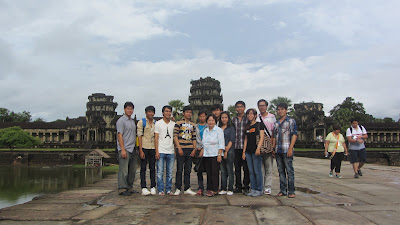ESSAY 2: Exchange
Preparedness–250 – 350 words, typed.
What have you experienced in the past that has prepared you
to live/study in the United States for one semester or one academic year?
I am confident that I am ready to live and
study abroad
Two years living alone in an alien place I
had never been before, I became strong enough to live on my own.
After graduating from high school, I moved from
the countryside to the capital city, Phnom Penh, in order to continue my study
in university. When arriving in Phnom
Penh at first, I didn’t have the faintest idea of what I was going to do and
how I could survive without any help from my parents. I was just like a piece of cloud which
drifted with the current of the air, I thought.
As I remember, on the first day I was in Phnom Penh, I got lost along
the way home from school, but luckily I was able to get back home after having
asked people selling things along the road.
From day to day, I familiarized myself with
this new and unfamiliar world. I
prepared everything myself. I did
cooking, went shopping, did laundry, washed dishes, prepared food, prepared my
bed, and dealt with the problems myself.
Every morning, I woke up early in order to cook breakfast before going
to school. These daily activities have
helped me to be confident and independent. What is the most important quality
that can show that I am ready to live or study abroad is when I had a chance to
represent my country on the global stage.
My school, the Institute of Technology of
Cambodia, sent me to join the 14th World Youth Meeting which was held
in Japan. Before going there, I had to
contact a travel agent in order to buy an air ticket. I did it myself. Then, I had to fly to Japan
without any company. Although I had
never traveled so far from home, I was brave enough to travel on my own. Also,
while in Japan, I faced other problems. There
were no people of my own race speaking my language and sharing similar
experiences with me. It was a bit
difficult for me at first, but I could break down that barrier and adapt myself
to the new environment.
Based on the aforementioned experiences, I
believe that I am ready to spend my time living and studying in the United
States.






